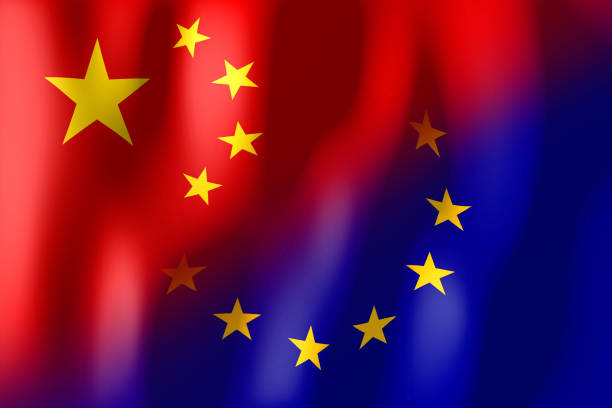The 23rd EU-China Summit held during March 31-April 1, 2022 exposed the existing fault lines between the two parties. The Ukraine crisis was the main theme of discussion between the European Commission and European Council Presidents and Chinese President and Chinese Prime Minister.
The EU leaders urged Beijing to measure upto its responsibilities and help in restoring the principles of international order based on national sovereignty and territorial integrity. It further asked Chinese leaders to leverage its close relationship with Russia to persuade Russian President Vladimir Putin to end the ‘special military operations’ in Ukraine paving the way for a diplomatic resolution of the conflict. Rejecting the suggestions, Chinese President Xi Jinping stated that the EU should follow an independent foreign policy towards China. He rather blamed the expansionist policies of the US and NATO’s for the current conflict. In response, the EU leaders, in a veiled threat, indicated that they would be watching for any attempts by China to soften the impact of sanctions on Moscow. They warned Beijing of ‘reputational damage’ in EU if it was perceived as interfering with the sanctions to help Russia.
Taking the discussion further, the EU leaders raised the issue of Beijing’s restrictive trade practices vis-à-vis Lithuania in violation of WTO rules following Vilnius increasing its ties with Taiwan. They also raised concerns regarding market access and investment environment in China, lack of transparent and competitive environment for digital economy, ethical issues in use of artificial intelligence and increase in cyber security threats. Beijing’s response was generic and merely emphasized that “mutual benefit and win-win results” were still the keystone of China-EU cooperation.
While reminding China of continued human rights violations in inner Mongolia, Tibet and Xinjiang region, the EU leaders at the same time expressed regret at dismantling of “one country two systems” principle in Hong Kong.
During a debate held in the European Parliament on April 05, 2022, the MEPs acknowledged that EU-China relationship could be a bumpy ride forward and stressed that Brussels should keep its concerns at the front and centre of EU-China relationship. MEP Ms Isabel Wiseler-Lima stressed that EU needed to be careful with Chinese trade conquests and economic goals. While MEP Nicola Danti suggested that the Comprehensive Trade Agreement signed in December 2020 should be reviewed, MEP Ms Salima Yenbou, Ms Kathleen Van Brempt and Ilhan Kyuchyuk suggested that EU’s China policy should factor the human rights situation in the country and Beijing’s approach vis-à-vis Taiwan and Hong Kong.
The tenor of the discussion during the 23rd summit indicates that the new geopolitical realities would be a significant factor in shaping EU-China relations. While there was recognition of close economic relationship between the two economies and the potential benefits, EU leaders seemed to have become more cognisant of the latent competition, Beijing’s aggressive behaviour and differences in their perception of the geopolitical situation. The EU is apparently ready for tougher conversations with China going forward.

